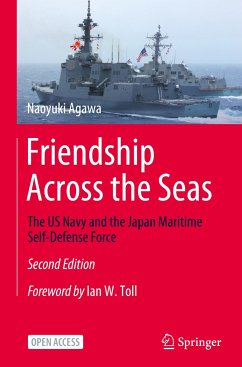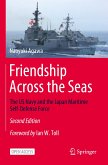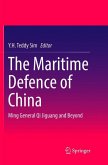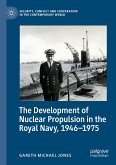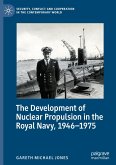This Open Access book describes the history of the relationship between the Japan Maritime Self-Defense Force (JMSDF), the heir to the Imperial Japanese Navy (IJN), and the United States Navy (US Navy), with a focus on the individuals who helped build it. Former enemies who fought fiercely on the seas and in the air during the Pacific War, the two navies came to respect each other in action. Soon after the war, when the Cold War turned hot, they began to work together as allies, driven by their respective national interests. With the generous assistance of the US Navy, the JMSDF was established as its counterpart.
Over the years, these two navies have gradually built strong ties. Individual officers and sailors on both sides overcame mixed feelings about their erstwhile foes to feel respect for and trust in each other. This was made possible by conducting countless joint exercises and operations at sea. US Navy leaders began to realize that this small maritimeforce, notwithstanding domestic political, constitutional, and legal limitations, does its job well, is reliable, and can be fully trusted. The JMSDF realized that, sharing common interests and values, there was no better navy in the Asia-Pacific region to ally with. Over seventy years of accumulated shared experiences have transformed this into perhaps the most successful navy-to-navy partnership in the world.
The US-Japan maritime alliance today is anchored in this history. Numerous admirals, officers, and sailors of the two navies working together have greatly contributed to the stability and prosperity of the Asia-Pacific region for the past seven decades.
This book is intended for readers interested in the history of US-Japan relations and for naval officers and sailors from the US and other countries. It is the author's sincere desire that they read this book and appreciate the longstanding cooperation between the JMSDF and the US Navy.
Over the years, these two navies have gradually built strong ties. Individual officers and sailors on both sides overcame mixed feelings about their erstwhile foes to feel respect for and trust in each other. This was made possible by conducting countless joint exercises and operations at sea. US Navy leaders began to realize that this small maritimeforce, notwithstanding domestic political, constitutional, and legal limitations, does its job well, is reliable, and can be fully trusted. The JMSDF realized that, sharing common interests and values, there was no better navy in the Asia-Pacific region to ally with. Over seventy years of accumulated shared experiences have transformed this into perhaps the most successful navy-to-navy partnership in the world.
The US-Japan maritime alliance today is anchored in this history. Numerous admirals, officers, and sailors of the two navies working together have greatly contributed to the stability and prosperity of the Asia-Pacific region for the past seven decades.
This book is intended for readers interested in the history of US-Japan relations and for naval officers and sailors from the US and other countries. It is the author's sincere desire that they read this book and appreciate the longstanding cooperation between the JMSDF and the US Navy.

